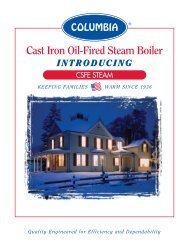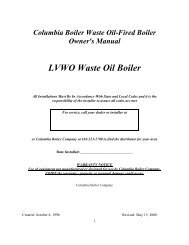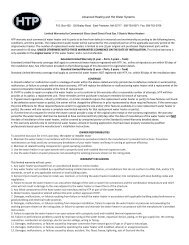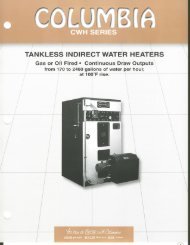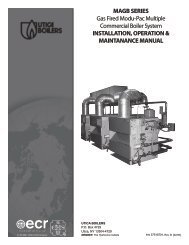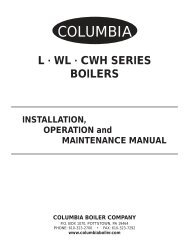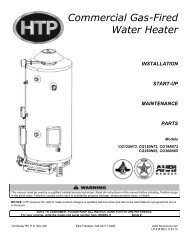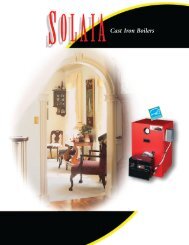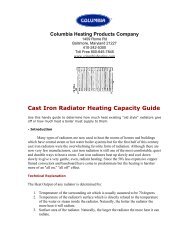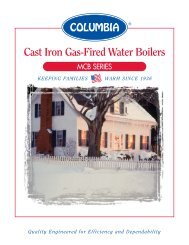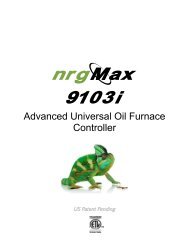MPH Manual - Columbia Heating
MPH Manual - Columbia Heating
MPH Manual - Columbia Heating
Create successful ePaper yourself
Turn your PDF publications into a flip-book with our unique Google optimized e-Paper software.
Alkalinity<br />
The alkalinity of boiler water should be sufficiently high enough to protect shell and plates<br />
against acidic corrosion, but not high enough to produce carryover. A minimum value for alkalinity<br />
for adequate protection is 200 PPM.<br />
High boiler alkalinity, which is in excess of 700 PPM. should be avoided. Values higher than this<br />
can lead to embrittlment of the steel.<br />
Phosphates<br />
Phosphates are used to react with calcium hardness in the boiler water. In order for this reaction<br />
to take place it is important to maintain a pH at a minimum value of 9.50. It is desirable to<br />
keep the concentration of phosphates in the water to 30-50 PPM in order for complete reaction<br />
of the phosphates with the calcium hardness entering the boiler through the feedwater.<br />
Hardness<br />
The hardness of water is caused by calcium and magnesium ions which will vary greatly<br />
throughout the country depending on the source of the water.<br />
In boilers the hardness of the water can cause the formation of scale and sludge or mud. The<br />
hardness must be removed in the makeup water to the return system. Total hardness should not<br />
exceed 50 PPM.<br />
Oils<br />
Every effort should be made to prevent oils from getting into the boiler water. Oil causes foaming,<br />
or combines with suspended solids to form a sludge which can cause the overheating of<br />
boiler plates. If oil does get into the boiler, the boiler should be taken out of service immediately,<br />
and thoroughly cleaned.<br />
27<br />
<strong>MPH</strong> COLUMBIA BOILER COMPANY



